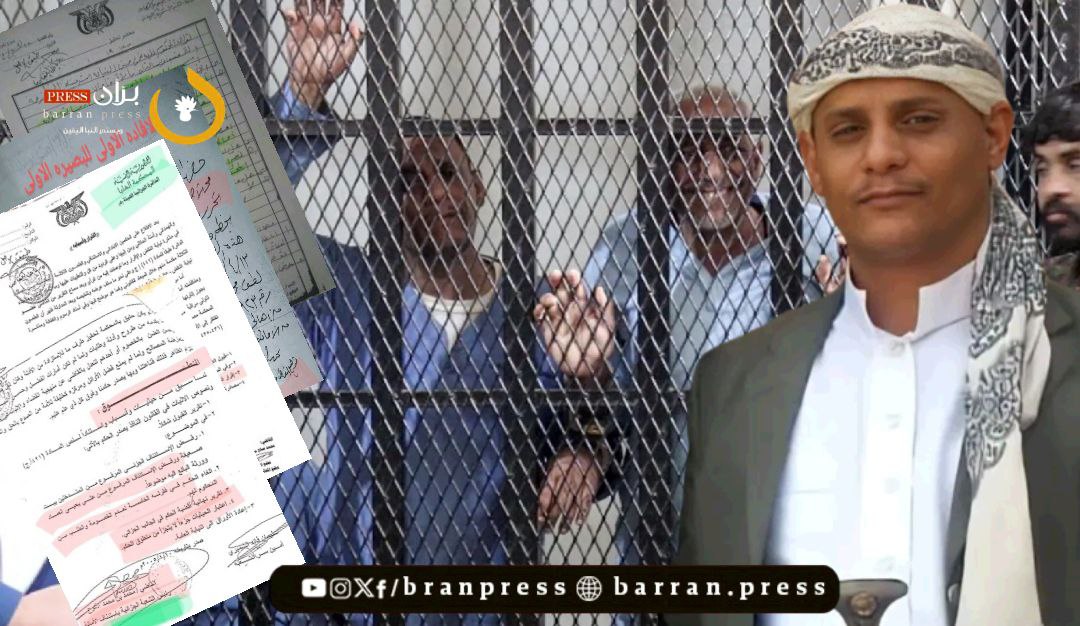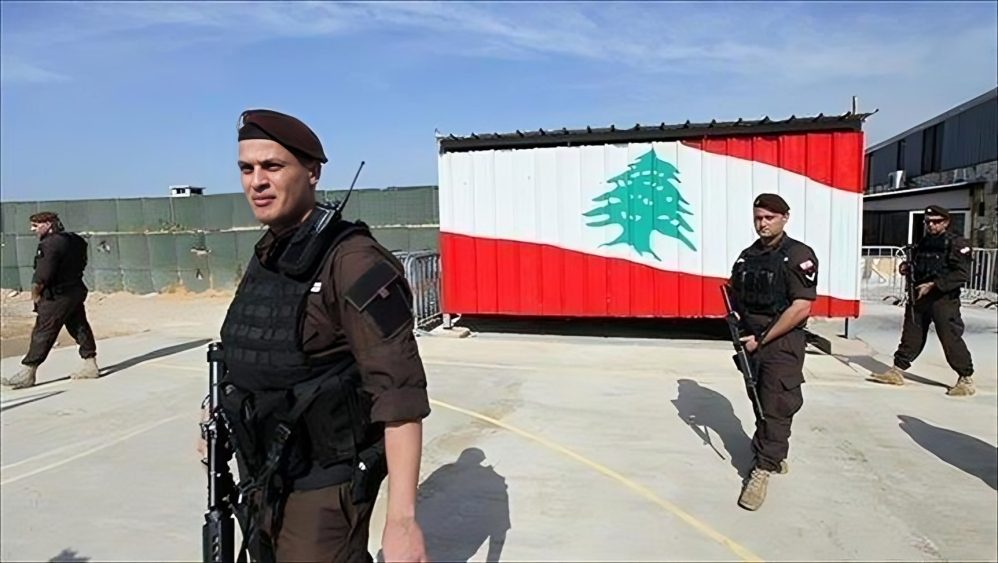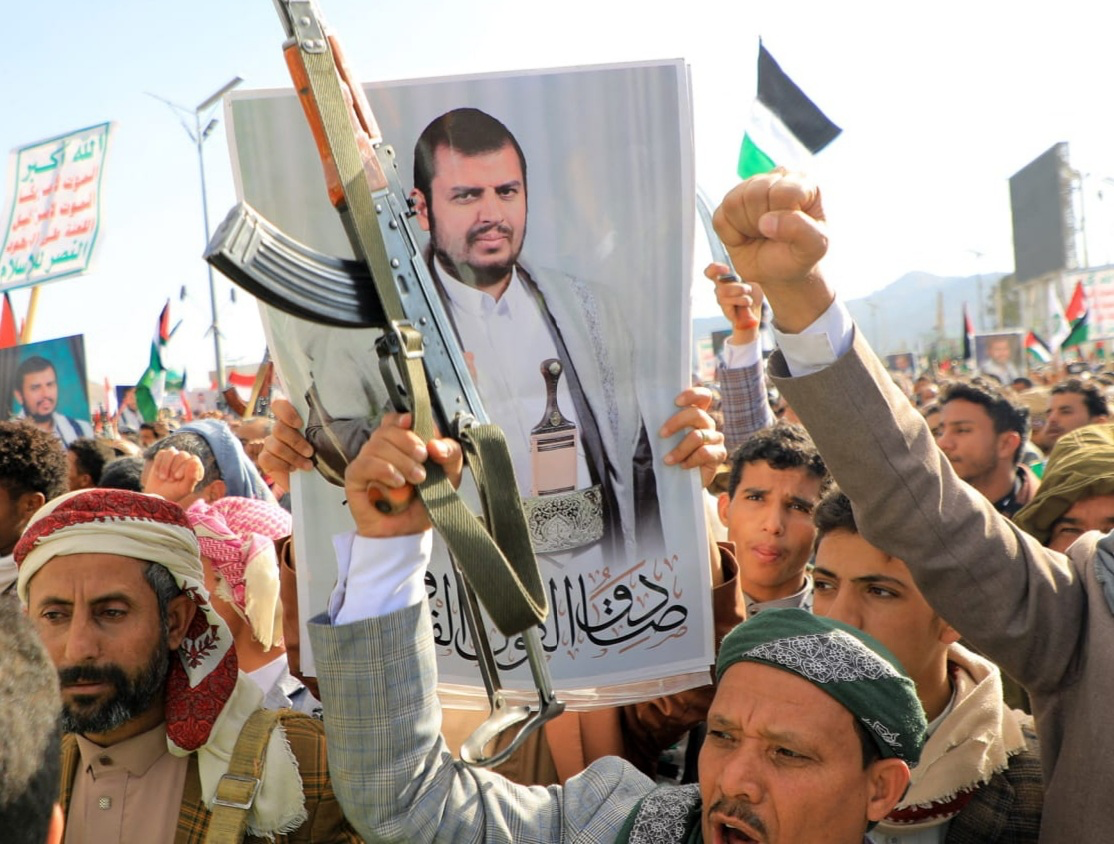
Barran Press
In mid-December 2020, the internationally classified Houthi group began implementing a campaign of arrests targeting legitimate secretaries involved in the preparation of land sale documents in the capital, Sana'a. Among them was Judge "Mohammed bin Mohammed Saleh Abu Al-Rijal."
After nearly three years of detention, the Houthi-affiliated Special Criminal Court issued a death sentence by gunfire against Judge "Abu Al-Rijal" on charges of treason and unauthorized contact with a foreign state, reportedly Qatar.
The Houthi judgment also sentenced 153 defendants to seven years in prison and acquitted 50 others in a case of forging property registers and seizing state land and endowments in the "Dar Salam" area of Sanhan district in Sana'a governorate.
What is the case?
"Barran Press" follows the story of Judge "Abu Al-Rijal," and upon reviewing the details of the case, it was found that the Houthi arrest of Judge "Abu Al-Rijal" coincided with the Houthi group's attempt to seize vast areas in the southern outskirts of Sana'a, claiming their affiliation to endowments, the state, citizens, and families from the defunct imamate system.
The judge was arrested in December 2020, along with 433 secretaries and Sharia judges, who were referred to by the group at the time through its affiliated media as "impersonating legitimate secretaries."
In early October 2021, the Houthis began the trial of "Abu Al-Rijal" and those with him after reducing the number of defendants to 206. The group assigned the trial to Judge "Yahya Abdul Karim Al-Mansour" as a tribal judge, accusing him of bias according to activists and lawyers due to his alignment with his group.
Human rights sources say that "Judge Mohammed Abu Al-Rijal" was subjected to the Houthi punishment for defending land issues, including lands in "Dar Salam," where the group accused him of forgery and manipulation.
The sources cited one of the supported cases with documents, involving the family of "Al-Imad" and former Yemeni army officer "Mahdi Maqoulah."
They said that "Al-Imad's family tried to seize two buildings belonging to Maqoulah on 60th Street in Sana'a by forging land ownership and putting the signature of Judge 'Abu Al-Rijal' on it, which he denied before the court president, stating that the inscriptions were not in his handwriting and the signature did not belong to him."
Regarding the death sentence, journalist and activist "Mohammed Al-Dubayani" said, "They fabricated false charges against Judge Abu Al-Rijal, and the Iranian betrayal gang concocted the accusation of espionage against him, the most absurd case of the century," noting that "Abu Al-Rijal refused to relinquish his lands and properties to the gang of the dynasty."
He added, "Because the ranks of the Houthis are filled with malice, crime, hatred, and treachery, they decided that Abu Al-Rijal was spying for an enemy state to claim their crime and publicly declare their malice and the meanness of their project."
On their part, the "Abu Al-Rijal" family in Old Sana'a condemned the Houthi judgment against their son "Mohammed bin Mohammed Abu Al-Rijal," considering the charges of treason and espionage for Qatar as "astonishing," according to their statement.
In a plea letter to the Houthi leadership, the "Abu Al-Rijal" family called for the formation of an investigation committee to review the judgment and conduct an investigation to clarify the injustice suffered.
In the letter obtained by "Barran Press," the family expressed deep dismay and sadness, as Judge Abu Al-Rijal is known for his patriotism. They pointed out that justice has become a victim of individual transgressions or side effects on the scale of justice.
They stated that "the verdict was not based on solid legal evidence or a sound legal document," calling on anyone with the ability to intervene, emphasizing that they will continue to fight for their son's acquittal from the false charges and the restoration of his dignity and stolen rights.
Houthi Land Grab
The Houthi group, known for its iron fist control over Sana'a, has been accused of orchestrating a systematic land grab, with the family of the group's leader at the heart of the operation.
Sources speaking to "Barran Press" allege that the Houthi leader has entrusted his family with the management of land affairs in Sana'a, accusing them of attempting to seize over 200,000 land plots.
Until 2020, the land portfolio was reportedly overseen by the leader's brother, Abdulkhaleq al-Houthi, who commands the Houthi-controlled Central Military Region. He allegedly oversaw the seizure of vast tracts of land in areas like Dar Salam, Dabar, Haziz, Kheira, Sa'wan, Bani Hashish, and Hamdan.
Following Abdulkhaleq's tenure, the responsibility shifted to Mohammed Ali al-Houthi, a member of the Houthi's so-called "Supreme Revolutionary Committee." In 2018, he established the "Supreme Committee for the Judicial System," a body designed to facilitate the land grab. This committee implemented a policy preventing land sales without permits from the Houthi-controlled Ministries of Justice and Endowments.
Mohammed Ali al-Houthi reportedly initiated a comprehensive land registry in Sana'a, aiming to identify properties owned by individuals opposed to the Houthi group, including those belonging to former sheiks and officials of the previous regime. The Houthi group then allegedly used Sharia secretaries to seize these properties, punishing those who refused to cooperate or disclose their land documents.
To further their land grab, the Houthi group deployed its security, intelligence, and forensic agencies in Sana'a. These agencies purportedly examined land documents dating back 700 years, fueling accusations of a fabricated justification for the seizures.
The accusations paint a picture of a family-led land grab, where the Houthi leadership appears to be using its power to enrich itself at the expense of the people of Sana'a. This alleged scheme highlights the Houthi group's disregard for property rights and its ruthless pursuit of power and control.





